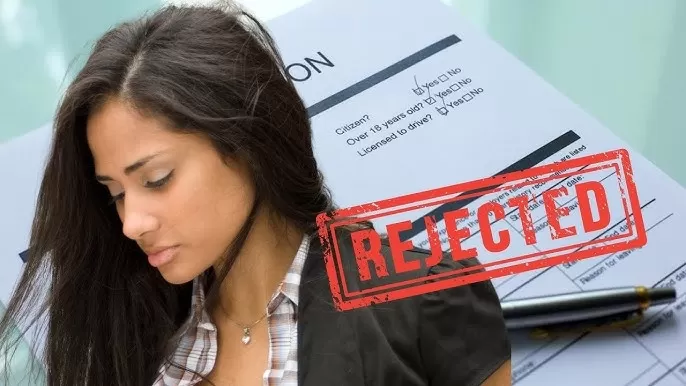The Hidden Cost of Visa Rejections: How India’s Mobility is Being Limited

Visa rejections have cost India millions of dollars and deferred dreams for countless individuals. With an increasing number of rejections in countries like New Zealand, Australia, the UK, and even the UAE, Indians are facing significant barriers in realizing their travel, business, and educational aspirations. The reasons for these rejections are multifaceted, from stringent visa rules to a low passport ranking, and they raise crucial questions about global mobility and fairness.
For centuries, moving freely across borders was a privilege reserved for the powerful. In medieval times, gatekeepers stood at the walls of kingdoms, controlling the flow of people in and out. Today, these ancient sentinels have been replaced by complex visa regimes, and the cost of rejection is borne by millions of people across the globe, particularly in India.
A recent 2024 report reveals that Indians lost 664 crore rupees (approximately $77 million) due to visa rejections last year alone. This staggering figure underscores the rising challenges that Indian nationals face when attempting to travel for business, education, or leisure. Among the nations with the highest rejection rates are New Zealand, Australia, the UK, and, more recently, the United Arab Emirates (UAE).
Rising Visa Rejections: The Numbers Speak for Themselves
The data is alarming. New Zealand rejects 33 out of every 100 Indian visa applications, while Australia turns away 30 in 100. The UK is even more restrictive, rejecting 17% of Indian visa applications. Schengen area countries deny 16% of applicants, and just last month, the UAE, a top destination for Indian travelers, saw its rejection rate rise from 1% to 6%. This increase in visa rejections is not just a financial loss; it represents crushed dreams and disrupted plans.
In 2023, over 25 million Indians traveled abroad, a 12% rise compared to 2019. This surge in international travel is driven by a growing middle class and the influence of social media, where travel is often seen as a symbol of success. Yet, this boom in outbound travel is coinciding with a growing sentiment of anti-immigration and anti-tourist policies across many countries, complicating the visa process further.
Key Factors Behind the Visa Rejection Crisis
- Post-Pandemic Travel Boom: The pandemic led to a significant delay in international travel, but now, as the world reopens, travel is booming. As more Indians seek to travel, the competition for visas is increasing, leading to more stringent approval processes.
- Tougher Visa Policies: Countries are tightening their visa policies. For instance, the UAE now requires travelers to show proof of at least 5,000 dirhams in their bank accounts, a return ticket, and accommodation bookings. Missing any of these documents results in automatic rejection. Other countries, like those in the Schengen area, require a voluminous amount of documentation for visa applications.
- Lengthy Wait Times: Getting a visa appointment has also become increasingly difficult. For instance, in the US, the average wait time for a visa appointment is 250 days, making it nearly impossible for many to get their visas approved in time for planned travel.
- Passport Ranking: One of the most overlooked factors contributing to this issue is India's ranking on the Henley Passport Index. With India ranked 85th globally, Indian passport holders face more challenges in visa approval compared to citizens of other nations. In contrast, countries like Kosovo (ranked 63rd), Cuba (ranked 80th), and Burkina Faso (ranked 82nd) have higher passport ranks, despite their political or economic challenges. The logic behind these rankings remains unclear, but it’s evident that India's economic standing does not reflect the ease of travel for its citizens.
The Economic Cost of Visa Rejections
The financial loss from visa rejections is just the tip of the iceberg. The implications for individuals are far-reaching, especially for those whose travel plans are tied to important milestones such as educational pursuits, business ventures, or family gatherings. For many Indians, obtaining a visa is a critical step in securing a better future abroad. However, when visas are rejected, these aspirations are thwarted, leading to disappointment and financial strain.
The UAE's recent rise in visa rejections is particularly impactful, as it has long been a top destination for Indian travelers. With one in four outbound Indians choosing the UAE, a 6% rejection rate means thousands of potential travelers are being denied access to this critical market for work, leisure, and business opportunities. These rejections further exacerbate the challenge faced by many Indian professionals seeking opportunities abroad.
Solutions: Leveraging India’s Economic Strength
So, what can India do to address these challenges and reduce the impact of visa rejections? Experts suggest several approaches that India can adopt to improve mobility for its citizens:
- Use Economic Leverage: India can leverage its growing economic strength and its importance in the global talent pool to push for better mobility agreements with key countries. The West relies heavily on Indian talent in industries like technology, medicine, and engineering. India’s diplomatic and economic influence can be used to negotiate easier access for its citizens.
- Align Visa Requirements: India could consider aligning its visa requirements with Western countries to ensure a more equitable and reciprocal approach to visa policies. This would not only streamline the process for Indian nationals but also foster mutual respect and collaboration between countries.
- Choose Visa-Friendly Nations: Countries like Thailand, Vietnam, and Sri Lanka, which have little to no visa requirements, offer attractive alternatives for Indian travelers. These nations are growing in popularity and could provide a more seamless travel experience for Indians who are facing difficulties in obtaining visas for Western countries.
- Promote Domestic Solutions: Given the complex nature of global visa policies, it may also be worthwhile to focus on strengthening domestic travel options and promoting tourism within India. This would offer a valuable alternative for individuals whose international travel aspirations are thwarted by restrictive visa policies.
Conclusion: Mobility Should Be a Right, Not a Privilege
At the core of the issue, the challenge is not just about complex visa procedures or bureaucratic hurdles—it's about access and equality. As India continues to rise as a global economic power, its aspirations should not be curtailed by an outdated and exclusionary system of gatekeeping. The need for more inclusive and equitable visa policies is critical, not only for India's citizens but for global cooperation and progress.
Visa rejections are a significant barrier to realizing dreams, and as India continues to play an increasingly prominent role on the world stage, it is imperative that the nation advocates for better mobility and access for its people. Whether it’s through diplomatic channels, economic leverage, or choosing more visa-friendly nations, India’s future must be one where its citizens can move freely and pursue opportunities without the weight of rejection holding them back.
What's Your Reaction?

















